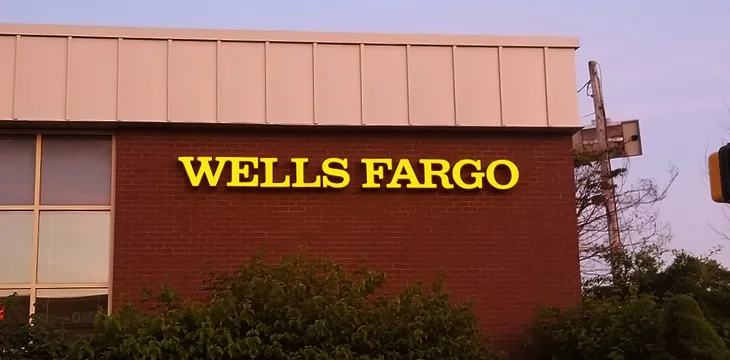|
Getting your Trinity Audio player ready...
|
American banking giant Wells Fargo has announced plans to pilot an internal settlement service which will run on the bank’s distributed ledger technology (DLT) platform. The platform will rely on the Wells Fargo Digital Cash, an internal stablecoin that will be pegged to the U.S. dollar. In a press release, the bank revealed that it has proven the concept by moving value between the U.S. and Canada.
Wells Fargo follows the footsteps of rival JPMorgan, which launched its internal digital asset earlier this year for internal payments. With banking services becoming increasingly digitized, Wells Fargo views its digital token as the solution to reducing friction in the money transfer business.
The head of innovation at the bank Liza Frazier commented, “We believe DLT holds promise for a variety of use cases, and we’re energized to take this significant step in applying the technology to banking in a material and scalable way. Wells Fargo Digital Cash has the potential to enable Wells Fargo to remove barriers to real-time financial interactions across multiple accounts in multiple marketplaces around the world.”
The pilot is scheduled for next year and is expected to facilitate USD transfers initially before expanding to other global currencies. The digital token will enable the bank to achieve real-time transactions without impacting “the underlying account, transaction postings or reconcilement infrastructure with international transactions (where platforms and process differ).”
The bank’s international locations will be able to move funds beyond the normal operating hours using the token. The DLT platform will also eliminate the need for third parties which will in turn cut the transfer time and associated costs.
Wells Fargo further revealed to CoinDesk that its DLT platform is built on Corda Enterprise, the enterprise product from blockchain consortium R3. The bank’s spokesperson told the outlet that they chose Corda as it “allows for appropriate data confidentiality controls, scales to bank transaction volumes and throughput, and supports an information security design that is compatible with Wells Fargo’s industry regulated standards.”
The Wells Fargo Digital Asset is the bank’s response to the advancements of its superior rival JPMorgan with its own digital token. However, in spite of the obvious benefits accruing from the move, one can’t help but wonder how easier and more cost-effective it would be to have a common blockchain platform with industry standards that both banks could use.
While Wells Fargo’s DLT platform will allow its different locations to move value between each other in real time, its clients will still have to go through the tedious traditional process when they decide to move funds between the two banks. This is because while Wells Fargo has built its platform on the Corda Enterprise blockchain platform, JPMorgan has built its platform on Quorum. The two platforms are not interoperable.
Wells Fargo made it clear that interoperability wasn’t an option, stating, “The internal DLT network is proprietary and will not be connected to any other digital cash solutions emerging in the financial services markets today.”

 07-15-2025
07-15-2025 





